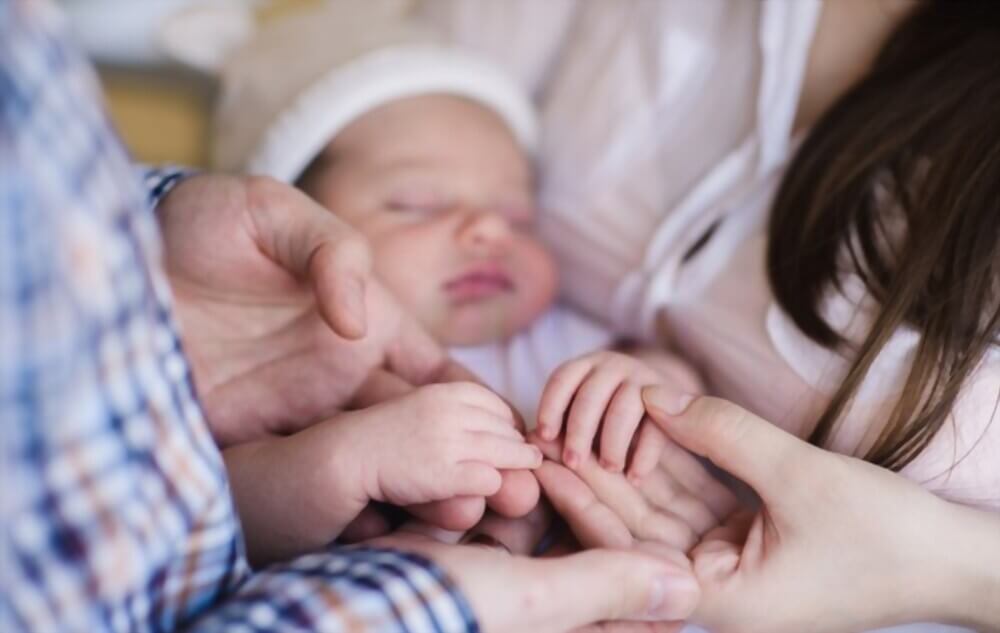January 26, 2026
How Successful Is IVF After Miscarriage?

Any woman and couple who has suffered a miscarriage knows what a difficult situation this is, and when more than one miscarriages occurs, it can feel devastating to both intended parents.
It is estimated that at least 10 to 15 percent of known pregnancies result in miscarriage, and this doesn’t account for miscarriages that happen before the woman even realizes she’s pregnant.

For women/couples facing multiple miscarriages, IVF may be recommended to help them conceive.
But does the IVF success rate make it worth the trouble?
What Is a Miscarriage?
Miscarriage, also called a spontaneous abortion, is the unexpected ending of a pregnancy within the first 20 weeks of gestation.
What Causes a Miscarriage?
Most miscarriages happen without external cause when the fetus isn’t developing. A pregnant woman does not have to do anything intentionally wrong to suffer a miscarriage, making it completely out of her control.
Prevalent causes of miscarriages include:
- Chromosomal mutations
- Age
- Uterine abnormalities
- Infections
- Exposure to TORCH infections
- Incompetent cervix
- Smoking, drinking, and excessive use of recreational drugs
- Improper implantation of the embryo
- Hormonal imbalance
- Infection
- Kidney disease
- Radiation
- Malnutrition
- Uncontrolled diabetes
- Thyroid disease
- Autoimmune diseases
- Incompetent cervix
- Chemotherapy
- Injury to the lower abdomen or other parts of the body
The Different Types of Miscarriage
Not all miscarriages are the same. Here are the different types of miscarriages you can experience.
Missed Miscarriage
Your primary care physician can diagnose you with a missed miscarriage if you were pregnant and unaware you miscarried. This type of miscarriage has no typical symptoms of a miscarriage, and typically requires diagnosis with an ultrasound.
Complete Miscarriage
Your doctor will conduct an ultrasound and discover you have lost the fetus because it is absent from the womb. Most women will experience bleeding.
Recurrent Miscarriage
As the name suggests, this type of miscarriage happens closely following two other miscarriages. This can affect about 1% of couples.
Inevitable Miscarriage
In this situation, you may be experiencing bleeding and cramping with a dilated cervix. Some women also experience leaking amniotic fluid, so a complete miscarriage is highly likely.
IVF After a Miscarriage
In vitro fertilization is an excellent solution for people who have experienced one or more miscarriages. With new developments in the reproductive health industry, the chances of success are quite high.
While IVF involves a financial cost and takes time and effort to accomplish, many women have found success with the process even after miscarriage. Because IVF uses preimplantation genetic screening (PGS), it enables the fertility specialist to evaluate the embryo for any genetic problems that may increase the possibility of another misscarriage.
This testing allows your fertility doctor to only transfer healthy and normal embryos into the uterus.
There are also things you can do to increase IVF success rates. Here are a few things you can do to prepare for your IVF procedure.
1. Maintain a Healthy Weight
Research has shown that being overweight or underweight can impact your fertility and cause other health issues. Overweight women also have a harder time getting imaging done to monitor the progress of follicle development. Women and men looking to get pregnant should optimize their weight and maintain the right BMI to increase their chances of success.
2. Improve Sperm Health
Since it takes two to tango, sperm quality can also affect the chances of conception and the risk of miscarriage. Men can take medications and supplements that improve the genetic material carried in the sperm cells.
3. Quit Smoking
Smoking and good health do not go hand in hand. This is because smoking can negatively impact your hormones, causing unwanted side effects. The habit can even reduce the genetic quality of sperm or eggs, leading to miscarriages.
Contact a Southern California IVF Specialist
For Women and couples who have experienced the pain of miscarriage, IVF can offer a ray of hope. Reproductive Fertility Center, with its clinics conveniently located throughout Los Angeles, provides cutting-edge IVF treatments that can increase the chances of a successful pregnancy after miscarriage. Through preimplantation genetic screening (PGS), the fertility specialists at Reproductive Fertility Center can carefully evaluate embryos for genetic abnormalities, helping to minimize the risk of another miscarriage. In addition, taking proactive steps such as maintaining a healthy weight, improving sperm health, and quitting smoking can further optimize the chances of success with IVF. If you are seeking effective solutions to overcome the challenges of recurrent miscarriages, Reproductive Fertility Center's IVF offerings may provide the support and expertise you need on your fertility journey. Contact Reproductive Fertility Center today to explore your options and take a step towards realizing your dream of parenthood.